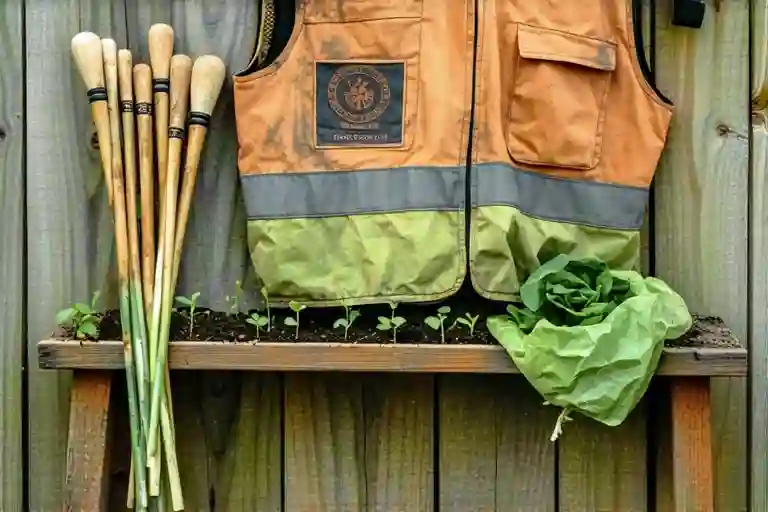No followers. No experience. No hope. Three phrases that defined my life not long ago. I didn’t have a brand to build upon, not an ounce of confidence to spare. My most prized possessions? Two wide-eyed children and the cold floor we shared as a bed. My voice—the one you’re reading now—was buried under layers of shame so thick I’d forgotten how to use it.
Yet every morning, before the sun rose and the children stirred, I wrote. Not because some divine inspiration struck me. Not because I believed in my potential. Simply because writing was the only action that made the screaming in my head quiet down for five minutes. When you’re standing at what feels like the end of everything, you’ll try anything that makes the pain pause.
If you’re reading this thinking “I have nothing to offer,” let me stop you right there. I’ve stood exactly where you’re standing—that terrifying crossroads between despair and desperation. But here’s the hard truth you need to hear today:
You’re dead wrong.
This isn’t another sob story about hitting rock bottom. You don’t need more proof that life can be cruel. What you do need—what I desperately needed when I first escaped domestic violence with my kids and our traumatized pets—is a practical framework for climbing out when every muscle screams to stay down. When hiding less than 3 miles from my abuser meant calculating every grocery trip like a military operation. When “freedom” felt like trading visible bruises for invisible ones that throbbed just as painfully.
That framework starts with one non-negotiable first step: radical acceptance. Not the flowery, inspirational-quote kind. The gritty, unphotogenic variety that happens when you stop comparing your chapter one to someone else’s chapter twenty. The kind I practiced while teaching online classes during naptimes, grateful for the $12/hour that kept our lights on when the standard rate was $10. The kind that acknowledges your current battlefield without romanticizing the struggle.
What makes this different from every other “start from nothing” guide? These words come from hands that still remember the chill of that floor. From a throat that recalls the metallic taste of silenced screams. From a writer who built her first audience not through viral tricks, but by showing up consistently with nothing but raw honesty and a stubborn refusal to quit.
Your story doesn’t require a dramatic before-and-after transformation to begin—mine certainly didn’t. It simply demands that you stop waiting for permission to exist beyond your struggles. That first blog post I wrote from a library computer? It reached exactly seven people. But those seven silent witnesses to my courage mattered more than any algorithm ever could.
Wherever you’re starting—whether it’s domestic violence survivor housing or your childhood bedroom at thirty-five—your voice already has everything it needs to begin. Not when the fear subsides. Not when the resources appear. Today. Now. As you are.
Because rock bottom makes for terrible living quarters, but the most honest foundations.
Stage 1: Accept Where You Are — Acknowledge Your Battlefield
The floor was cold. Not metaphorically cold—the kind that seeps through thin pajamas and leaves your joints stiff by morning. Three trash bags held everything we owned. My children’s stuffed animals took priority over pillows. This wasn’t poverty porn; this was Monday.
When people say “hit rock bottom,” they imagine a dramatic crescendo. Reality is quieter: staring at a phone screen at 3 AM applying for online teaching gigs while your kids share a blanket nest in the corner. Freedom tasted like instant coffee and overdue bills.
The Three Signs You’re Actually Accepting Reality (Not Just Surviving)
- You stop comparing your Chapter 1 to someone else’s Chapter 20
- My turning point: Deleting social media for six months. No more watching polished “success stories” while eating peanut butter straight from the jar.
- Your move: Write down one unfair comparison you’re making (e.g., “Why can’t I have a studio like that blogger?”). Burn it. Literally or metaphorically.
- You inventory assets without sugarcoating
- My list at Day 1:
✓ A laptop (3 years old, sticky ‘S’ key)
✓ Basic English teaching certification
✓ Library card (free Wi-Fi access)
✗ No childcare. No savings. No family support. - Your task: Make two columns: “What I Actually Have” vs. “What Society Says I Need.” Circle three items in the first column you’ve undervalued.
- You set basement-level goals
- Then: “Earn $50 this week” not “Build a six-figure brand.”
- Now: Teach clients to aim for “$10 days” — small wins that prove momentum beats perfection.
The “Are You Really Facing Reality?” Checklist
Mark each statement True/False:
- [ ] I can describe my financial situation within $50 accuracy
- [ ] I’ve identified one skill I possess that someone might pay for
- [ ] I know which free community resources exist within 5 miles of me (food banks, career centers, etc.)
- [ ] I’ve cried about my circumstances within the past week (suppressed emotions distort judgment)
- [ ] I can name three people who’d take my emergency call at 2 AM
Scoring: Each “True” is a foundation stone. Each “False” is your next action item.
Key Truth: Acceptance isn’t about liking your situation. It’s about seeing it clearly enough to strategize. When I finally admitted “I’m a traumatized single mom with no safety net,” I could start building instead of pretending.
Tomorrow’s work starts with today’s honesty.
Small Actions: The 5% Rule to Break Free
I remember staring at the blank screen, fingers hovering over the keyboard. Fifteen minutes. That’s all I allowed myself each morning – fifteen minutes to write whatever spilled from my bruised heart. No editing. No grand plans. Just words on a page that nobody would ever see. Those fragile morning sessions became my lifeline when everything else felt impossible.
Why Tiny Steps Work When Big Leaps Fail
When you’re surviving (not living), ambitious goals become enemies. They whisper cruel reminders of how far you’ve fallen. But small actions? Small actions are allies. They don’t demand energy you don’t have. They don’t judge your shaky beginnings. Here’s what worked for me:
- The 15-Minute Rule: Set a timer. Write until it beeps. If you continue, that’s bonus points. If not, you’ve already won.
- One Free Resource Daily: Whether it’s signing up for a writing platform like Medium (no cost) or downloading a free budgeting app – one small win compounds.
- The 3-Sentence Journal: Too exhausted for paragraphs? Try: “Today I felt . One thing that helped was . Tomorrow I’ll try _.”
I taught online classes during this time, grading papers between writing sprints. The $12/hour barely covered groceries, but those fifteen-minute writing sessions? They rebuilt something priceless – my belief that I still had something to say.
Your Zero-Cost Starter Kit
You don’t need money to begin. You need permission to start small:
- Writing
- 750words.com (private, stream-of-consciousness writing)
- Reddit writing prompts (public but anonymous)
- Skill-Building
- Coursera’s free courses (apply for financial aid)
- YouTube tutorials (search “[skill] for beginners”)
- Community
- Facebook groups for writers/survivors (use pseudonym)
- Local library writing meetups (many now virtual)
The Perfectionism Trap
Here’s what nobody tells you: Waiting for the “right time” is just fear in disguise. My first online articles were terrible. My hands shook hitting “publish.” But imperfect action beats perfect paralysis every time.
Three signs you’re over-preparing:
- You’ve researched “how to write” for months but never written
- You tell yourself “I’ll start when _ happens” (when the kids are older/when I feel better)
- You compare your chapter 1 to someone else’s chapter 20
The Alchemy of Small Wins
Those fifteen minutes taught me more than any writing course: Consistency transforms desperation into direction. One month of micro-sessions gave me enough material for my first paid piece ($45 – enough for gas and groceries that week). Six months later, a newsletter picked me up. The amounts were laughable by “real writer” standards, but when you’ve slept on floors, every word that buys a pillow feels like a miracle.
Your turn:
- Today: Set a timer for 5 minutes. Write one true sentence about where you are right now.
- This week: Claim one free resource from the list above.
- This month: Share one small win with someone (even if it’s just “I wrote 3 days this week”).
Small doesn’t mean insignificant. It means sustainable. Your 5% effort today is the foundation for everything that comes next.
Resource Integration: You Are Not an Island
When I first published my writing online, I didn’t use my real name. Not because I was ashamed of my words, but because safety came before visibility. That anonymous Medium post became my first bridge to the world – and it cost me nothing but fifteen minutes of courage.
The Three Pillars of Support
- Psychological Anchors
- National Domestic Violence Hotline (24/7 multilingual support)
- BetterHelp’s free weekly support groups (no insurance required)
- The “Write to Heal” Facebook group (moderated, private space for survivor-creators)
- Economic Lifelines
- ProBlogger’s free job board (my first $20 writing gig came from here)
- Canva’s free design tools (for creating portfolio samples)
- Local library digital resources (free LinkedIn Learning access saved me $300/year)
- Legal Protections
- WomensLaw.org’s state-by-state legal guides
- VictimConnect’s chat-based legal referrals
- SafeHorizon’s court accompaniment programs
Publishing Without Exposure
I tested three approaches when starting out:
- Pen Names
Used a variation of my middle name on Contently (still my ghostwriting profile) - Buffer Accounts
Created a separate email/Gmail Voice number for writing inquiries - Content Mills
Though low-paying, Textbroker allowed complete anonymity while building samples
The surprising winner? Medium’s Partner Program. By tagging articles “domestic violence recovery” rather than personal narratives, I attracted therapeutic professionals seeking survivor perspectives – at $0.03/word initially, now $0.28/word.
Safety First Always
Three non-negotiable rules I learned:
- Geotagging Off
Disable location services before photographing writing spaces - Reverse Image Search
Run profile pictures through TinEye before use - The 48-Hour Rule
Never share fresh writing about trauma until two sleep cycles pass
Your local librarian can often help implement these precautions discreetly. Mine taught me to use the library’s computers for sensitive searches, leaving no digital traces at home.
The Hidden Network
Look beyond obvious platforms:
- Nextdoor
Found my first local editing client through neighborhood skill-sharing posts - Reddit Writing Prompts
Built initial confidence with throwaway accounts - Church Bulletin Boards
Secured safe childcare gigs through community notices
What matters isn’t the prestige of the platform, but that it meets three criteria:
✅ Free to access
✅ Allows controlled visibility
✅ Has reporting mechanisms
Start with one resource from each category this week. Not all will fit, and that’s fine – this is about creating options, not obligations. My first published piece reached exactly seven readers. But one of them became my first regular client. Your network builds one connection at a time.
Your Story Is Just Beginning
That floor I slept on with my kids? It’s now a writing desk where I craft stories that pay my bills. Those trembling hands too ashamed to type? They now confidently share truths that help others survive. From $10/hour online teaching gigs to building a sustainable writing career—every step forward started with the decision to begin where I was, not where I wished to be.
From Rock Bottom to Foundation
Three things transformed my rubble into building materials:
- Writing through the shame (even 50 words daily)
- Claiming free resources (like Coursera’s writing courses)
- Finding my tribe (trauma-informed writing groups)
You don’t need dramatic changes today. Just:
- Open your notes app
- Write one true sentence about your current reality
- Tag it #StartFromNothing
The Alchemy of Small Steps
That first terrible draft I wrote while hiding from my abuser? It became an essay that paid for my kids’ school supplies. The disjointed journal entries? They revealed my unique voice. Your raw, unpolished beginnings contain the DNA of what only you can create.
Try this now:
- Set a 5-minute timer
- Complete: “Right now, I have _ but I can still _“
- Share in the comments (or keep it private—this is your process)
Safety in Visibility
For survivors: Your anonymity matters. Consider:
- Using pen names on writing platforms
- Creating separate email for creative work
- Joining private groups like The Secret Society of Survivor Writers (free membership)
The Truth About Rock Bottom
That cold floor taught me what velvet cushions never could—how to rise. Your darkest moments aren’t the end of your story. They’re the solid ground beneath your next chapter.
“Rock bottom became the foundation on which I rebuilt my life.” — J.K. Rowling
Your turn. Write your 50 words. Tag #StartFromNothing. Watch how the universe responds to your bravery.





